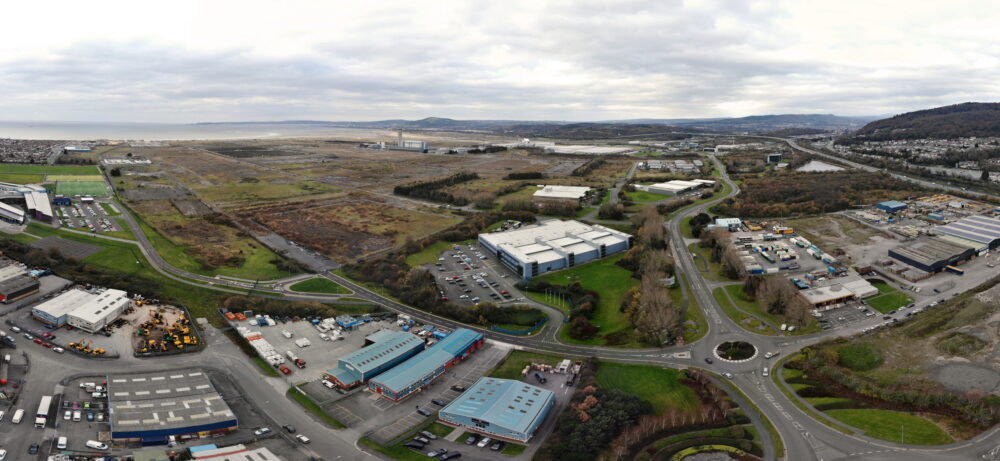New Welsh freeports in Port Talbot and Milford Haven could create 20,000 new jobs across wide range of sectors

created by dji camera
Wales’ two successful Freeport bids are expected to create 20,000 new, high-skilled jobs across a wide range of businesses, not just those with import and export operations, according to property consultancy Knight Frank.
Celtic Freeport at Port Talbot and Anglesey Freeport at Milford Haven were the successful bidders announced last month and the new sites are set to attract an estimated £5 billion of investment.
Claire Williams, Head of UK and European Industrial Research at Knight Frank, said: “Companies inside the tax sites will be offered temporary tax breaks including reductions to the tax companies pay on their existing property, and when they buy new buildings.
“The Business Rates Relief is 100% and for five years, and will be particularly valuable given the rise in business rates taking place from April 1, 2023. Also National Insurance Contributions relief is applicable for three years of employment for new hires, which could prove a draw for labour-intensive manufacturing operations.”
According to the Knight Frank research, the Freeports offer strong opportunities for Wales, with the benefits of Freeports relevant to a wide range of business sectors, including manufacturing and energy production.
Claire Williams said: “Freeport status could help boost the prospects for the local area. For instance, part of the Celtic Freeport project involves accelerating plans for a large floating offshore windfarm in the Celtic sea with turbines being launched from and manufactured in Port Talbot.“
The Freeport could also present an appealing location for firms seeking to reshore manufacturing operations with the tax benefits leading to reduced operating costs which could help reduce or eliminate any cost advantage from offshore production.
Offshoring relies upon a significant production cost differential between manufacturing the goods at home compared with offshore locations. Labour-intensive industries, in particular, have sought to take advantage of the relatively lower cost and availability of low-skilled labour overseas as a way to drive down their wage bill.

Neil Francis, head of the Logistics & Industrial team at Knight Frank in Cardiff, said: “Opportunities for manufacturing growth and reshoring for Wales lie in advanced, high-value manufacturing. This is because of the post-Brexit rules of origin, the UK’s strong intellectual property rights and some of the strengths of the Welsh market, which include the availability of highly-skilled labour and low occupancy costs relative to other parts of the UK.”
Investment in manufacturing in real terms has increased 51 per cent over the past 10 years according to the Office for National Statistics, and manufacturers are estimated to occupy around 392 million sq ft of industrial floorspace in units over 50,000 sq ft across the UK, with around seven per cent of this space located in Wales.
Neil Francis said: “With manufacturing investment expected to rise 17 per cent over the next 10 years, the sector is likely to place further demands on industrial land and floorspace, as well as providing continued investment into facilities.”
—
Image of Baglan Bay, one of the areas set to benefit from the development, created by dji camera




